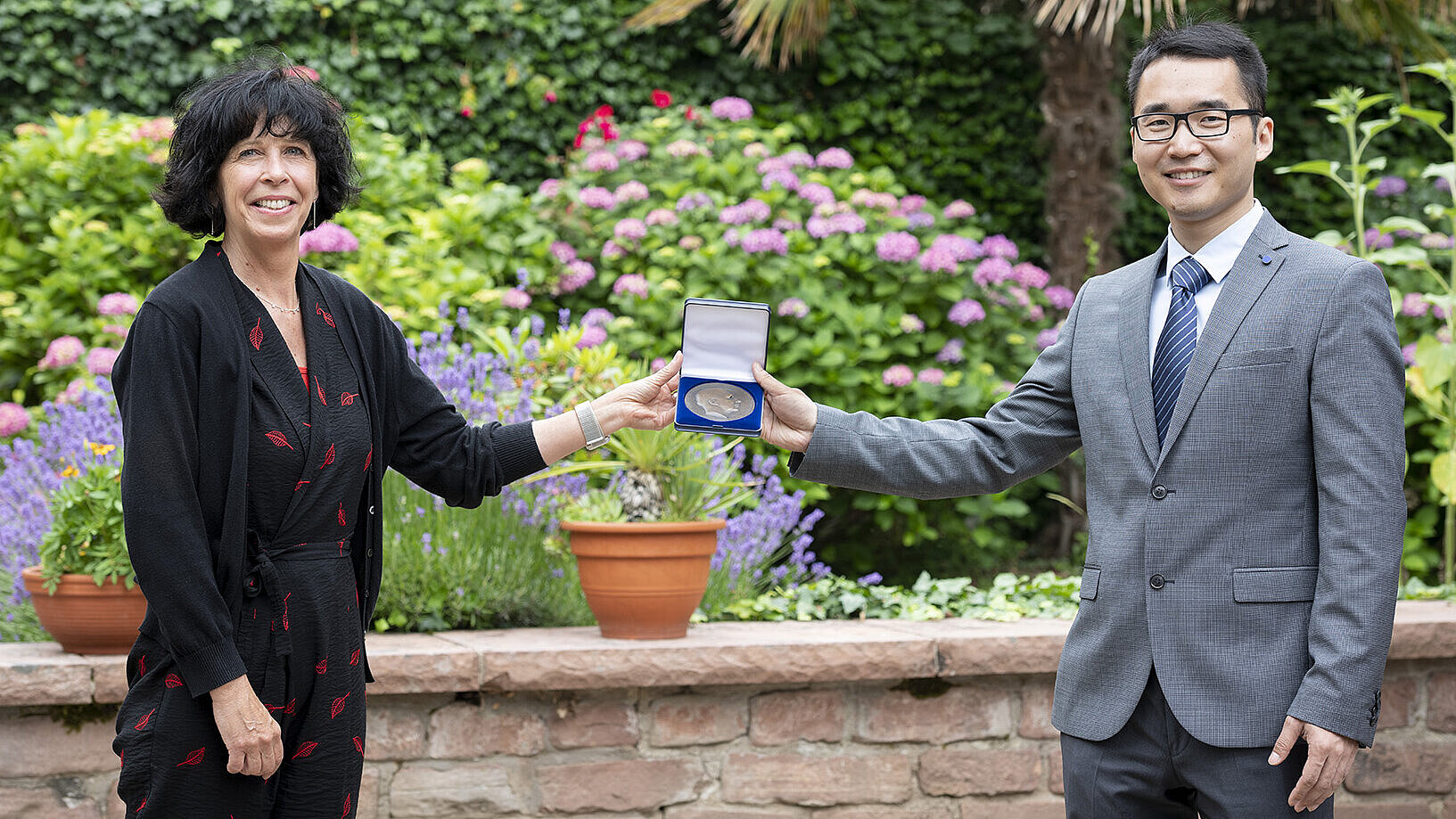Weinheim, 25 June 2021 - A team of researchers from Heidelberg has made a discovery on the molecular basis of nerve cell death in neurodegenerative diseases such as stroke or dementia. A certain key receptor can form a complex together with its partner in the nerve cells. This leads to cell death in neurodegenerative diseases. This is the case, for example, in Alzheimer's disease, Huntington's disease and ischaemic stroke. The scientific discovery helps to better understand the principle of nerve cell death in neurodegenerative diseases. The researchers also discovered a new class of inhibitors that can help protect nerve cells. For his research results in Professor Dr. Hilmar Bading's team at the Interdisciplinary Centre for Neurosciences (IZN) at Heidelberg University, 32-year-old neurobiologist Dr. Jing Yan is receiving the Karl Freudenberg Prize today.
"When I received the email that I had won the Karl Freudenberg Prize, I was excited and at the same time felt it was a great honor after several years of research work ", says Dr Jing Yan. After studying biology at Shandong University in China, the young scientist did research in Prof. Dr. Hilmar Bading's team at Heidelberg University, where he received his PhD in 2020 and works today. 14 hours of experiments, exchanges with the other scientists and evaluations in the lab - this is what a typical working day of Dr. Jing Yan looks like.
In his work "Coupling of NMDA Receptors and TRPM4 Guides Discovery of Unconventional Neuroprotectants", the young scientist and neurobiologist explains how exactly N/T interface inhibitors function in the brain. The new scientific findings offer for the first time new approaches for the treatment of previously untreatable neurological diseases such as ischaemic stroke. The results were published in the renowned scientific journal "Science".
The prize, donated by the Freudenberg Group, is awarded by the Heidelberg Academy of Sciences. "As an innovative technology company, Freudenberg supports young scientists like Dr Jing Yan. The insights gained have the potential to advance the research and development of active substances against diseases such as dementia or Alzheimer's," says Dr Niko Reuß, Head of Freudenberg Technology Innovation.
Freudenberg promotes young scientists
In 1986, on the occasion of the 100th birthday of the Heidelberg chemist Karl Johann Freudenberg, Freudenberg donated the Karl Freudenberg Prize for the promotion of young scientists in Baden-Württemberg. The prize is awarded annually for scientific work in the field of natural sciences - especially chemistry and biology. He is endowed with 10,000 euros. Nominations and the extensive selection process are made by the members of the Mathematical and Natural Sciences Class of the Heidelberg Academy of Sciences (Landesakademie Baden-Württemberg) as well as by university professors and heads of institutes in Heidelberg.
